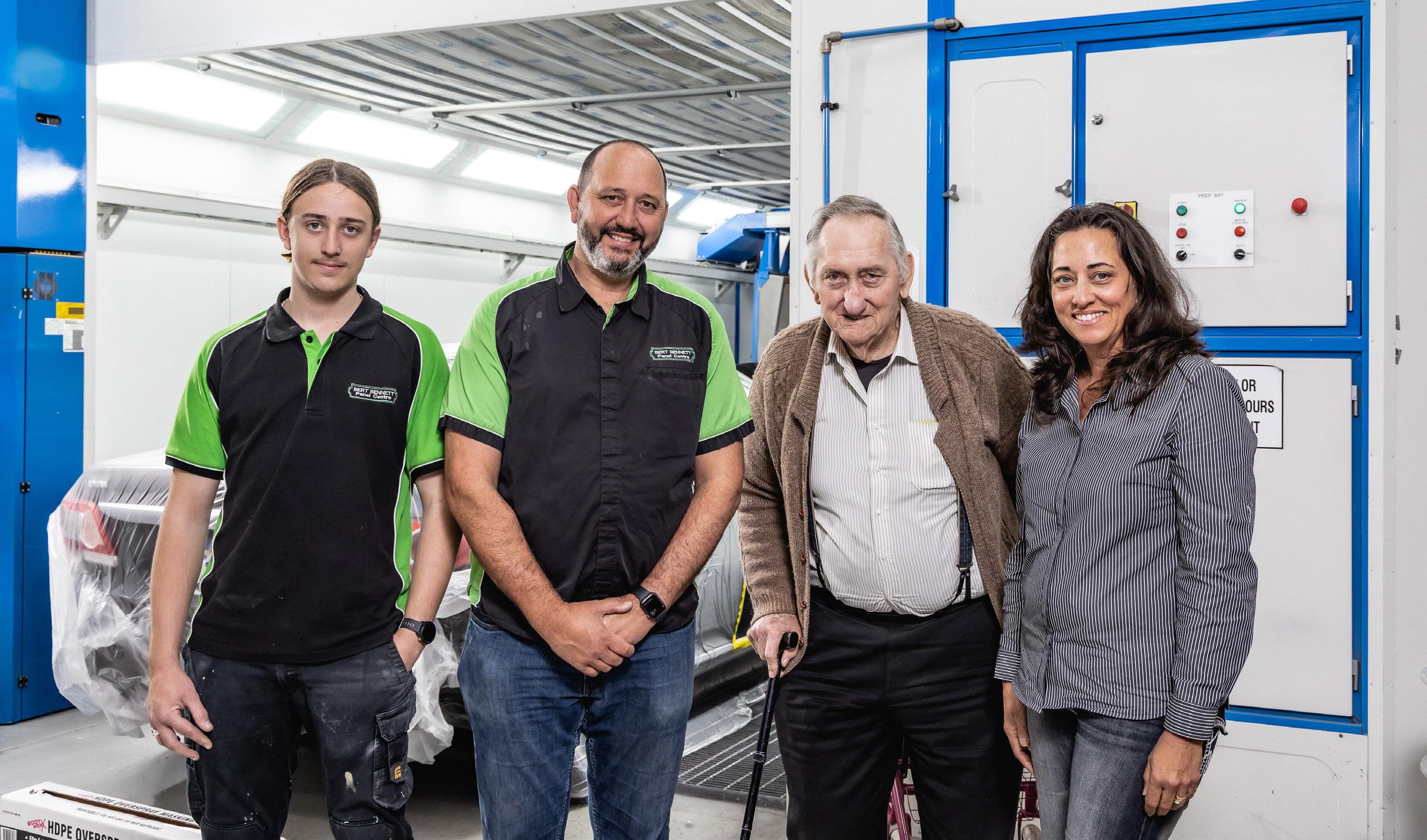
3 minute read
PROTECTING THE FUTURE OF THE AUTOMOTIVE INDUSTRY
Offering more support to fourth year apprentices has been identified as a key opportunity for policy makers and the automotive industry, as an extraordinary industry wide skills shortage grips the country.
The experience for fourth year apprentices, and other crucial apprentice insights have been revealed via the unprecedented nationwide Automotive Apprentice Survey, a joint project by the Australian Automotive Aftermarket Association (AAAA), Australian Automotive Dealer Association, and the Motor Trades Association of Queensland, in conjunction with ACA research.
“The automotive industry is experiencing an unprecedented skills shortage and we must tackle it head on. This groundbreaking research is a practical way to learn, and develop strategies at government, industry and workshop level to attract and improve retention of apprentices in the future,” said Stuart Charity, CEO of the AAAA.
Amongst all apprentices, satisfaction is lowest amongst those in their 4th year. As these apprentices are just reaching the launching point for a career in automotive, they are disengaging and considering other options. It is critical that we retain these talented and committed individuals in the industry they are passionate about and that desperately needs them. First year apprentices were also targeted in the survey. With a passion for automotive 75% were satisfied with their situation despite some challenges around pay. Youth remains a dominant source of industry new-starters, with 68% of apprentices starting their career path during, or straight after completing school studies.
As a clear opportunity to introduce more and new skills into the automotive industry, providing improved career pathways for women was highlighted as an important piece of the puzzle. The Apprentice Survey offered a welcome insight into the perspectives of female apprentices.
Encouragingly, 88% of 4th year apprentice respondents are keen to receive further support beyond the completion of their apprenticeship in the areas of training, career prospects and development. This clearly signals both a commitment to and passion for the automotive aftermarket.
Technology based training is at the top of the wish list for 4th year apprentices and includes specialisation areas such as hybrid or electric vehicles, programming and diagnostics, and advanced driver assistance systems technology.
Younger generations are known as digital natives, having grown up with computers, internet and software, so it’s no surprise that apprentices are interested in these areas. Training opportunities around new vehicle technology for apprentices and recently qualified technicians is an investment in a workshop’s ability to repair, service and maintain these new generation vehicles. Encouragingly, females are generally satisfied with their career choice and are committed to the profession long term. However, lack of diversity and challenges in the workplace were seen as areas for improvement. Understanding the opportunities available for a long-term automotive career, and role modelling from the successes of other women in the industry are where female apprentices look for inspiration and set goals for their future.
“Our industry and the economy depend on having enough skilled automotive technicians to service and repair vehicles. There is no silver bullet, however collectively as an industry we will continue to make inroads on this critical industry issue, said Lesley Yates, Director of Advocacy and Government Relations, AAAA.
“For workshop owners and managers, I encourage you to download the free Automotive Apprentice Survey report, and consider the findings as you work to attract great talent and retain great staff,” said Lesley.
Automotive Apprentice Survey report – visit https://www.aaaa. com.au/news/aaaa-news/automotive-apprentice-surveyresults








